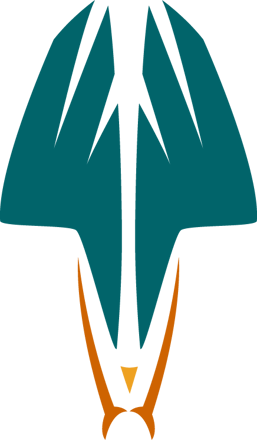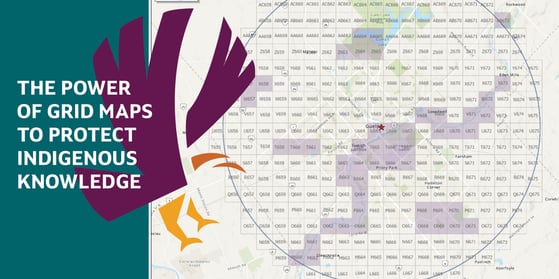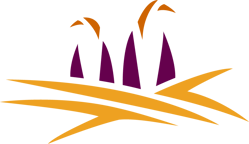
Welcome to Shared Value Solutions' biweekly funding and news digest. We hope it finds you well.
In this issue we begin by recognizing the latest manifestation of systemic racism that is currently playing out in Nova Scotia. We share the frustration and outrage many of you, our clients, are feeling about the acts of violence against Mi'kmaq fishers and stand in solidarity with them and all Nations in the fight to assert their Indigenous Rights. We've included some background information on the topic below.
This week we share a new post in our popular Indigenous Knowledge Matters blog series - highlighting how grid maps can be used to protect the exact locations of your Traditional Knowledge values while still telling a compelling story with your land use maps. Read on for our usual roundup of interesting new funding opportunities and inspiring stories from across Turtle Island. Stay safe and well, everyone!
We Stand in Solidarity with Mi'kmaq Fishers
As we watch the events in Nova Scotia unfold, we recognize that the struggle faced by Mi’kmaq fishers is reverberating through our clients’ communities. We share in the outrage and frustration that many are feeling as we watch the acts of vandalism and violence toward those who are exercising their Indigenous Rights. We are again reminded of the importance of reflecting on Canada’s colonial history and on the racism that continues to affect the lives of Indigenous Peoples.
We stand in solidarity with Mi’kmaq fishers and every Nation from coast to coast to coast in the fight to assert their Indigenous Rights. The pervasiveness of systemic racism in our society is once again in the spotlight. And once again, we are confronted by the need to acknowledge what’s happening and take real action. In order to create a more just and equal society, we must first reflect on our own internal processes and actions and ask ourselves how we can be part of a better future. Our team maintains our commitment to be part of the change required to bridge gaps, create mutual understanding, and take our own steps on the path to reconciliation.
In the news:
Nova Scotia lobster dispute: Mi'kmaw fishery isn't a threat to conservation, say scientists | The Conservation
"Conservation is not at the heart of the ongoing dispute."
The Marshall Decision and Mi'kmaq Commercial Fishing Rights: An Explainer | First Peoples Law
"By commencing their self-regulated commercial fishery, Sipekne’katik has taken the position that the status quo of unfulfilled Treaty promises is no longer acceptable. "
'Abject failure': Sen. Murray Sinclair criticizes federal response to Mi'kmaw fishery dispute | CBC Radio
"When it comes to the issue of the fishery itself, the Mi'kmaq people clearly have a right that is a higher right than the commercial fishers have, and the commercial fishers don't recognize that."
Indigenous people wanting to support Mi'kmaw fishermen in N.S. get creative | CBC
'The dispute over a Mi'kmaw-regulated lobster fishery in Nova Scotia has caught the attention of Indigenous people across the country and many are getting creative with how they're lending support to the fishers.
Mood at Mi'kmaw fishery camp 'very positive' due to shows of support, says volunteer | CBC Indigenous
People from across Mi'kmaw territory helping fishers at federal wharf in Saulnierville, N.S.
N.S. First Nation pulls lobster boats from water, says it lost potential $1.5 million after being 'blacklisted' | National Post
'"The (non-Indigenous) commercial fishery has systematically boxed us out of the market," Sack said in a statement.
Sipekne'katik chief says moderate livelihood fishery is here to stay| APTN News
Sipekne’katik Chief Mike Sack held a news conference Tuesday on the wharf where the violence over the Mi’kmaw moderate livelihood fishery started a month ago and a day after an emergency debate was held by members of Parliament in Ottawa.
Nova Scotia restaurants boycott lobster in response to violence against Mi'kmaq| Halifax Today
"We felt like it's a very small gesture that we an make in support and solidarity of stopping the violence that's taking place right now."
A New Approach to Protecting Indigenous Knowledge: Grid Mapping

Any Indigenous Nation who has worked on an Indigenous Knowledge study has faced the issue of how to protect sacred and precious knowledge while also using it to protect rights and interests. This week's blog post in our series Indigenous Knowledge Matters, highlights a new approach to protecting Indigenous Knowledge: Grid Mapping.
Indigenous Funding Programs
Here are some opportunities to check out:
Indigenous Peoples Resilience Fund
Any Indigenous-led organization or Indigenous-serving organization working to foster resilience in Inuit, Metis and First Nations communities anywhere in Canada can apply for resiliency funds ranging from $5,000 to $30,000. The Fund has been accepting applications beginning on June 16th, 2020 and is ongoing. The Indigenous Peoples Resilience Fund is being developed by Indigenous philanthropic knowledge holders and is being incubated with support from Community Foundations of Canada.
Indigenous Community Support Fund
The Government of Canada announced that an additional $305 million will be added to the Indigenous Community Support Fund. It will be distributed through a combination of allocations directly to First Nations, Inuit and Métis leadership, and needs-based funding, which will be application driven. Further details will be forthcoming
Sport for Social Development Projects Funding
The Government of Canada is now accepting applications for funding for projects across the country under the Sport for Social Development Projects in Indigenous Communities initiative, with two funding streams available. The Sport for Social Development in Indigenous Communities initiative is addressing the Truth and Reconciliation Commission of Canada Calls to Action 7, 19 and 38.
Opportunities Round-up:
- The Nuclear Waste Management Organization NWMO released a draft planning framework for the transportation of used nuclear fuel, and are seeking feedback and input on the framework over the coming months.
- Fisheries and Oceans Canada (DFO) is seeking feedback on its draft policies related to Cetaceans (whales, dolphins, and porpoises) in captivity to further understand stakeholder views and interests. You can submit ideas through the online form or through e-mail. Deadline for input is November 18, 2020.
- Canada Ontario Resource Development Agreement (CORDA) funding is available for First Nations to conduct a project that promotes natural resource development, management, harvesting or conservation in Ontario. Projects can receive up to $35,000 and applications are due November 18
- CRE's Centre for Indigenous Policy and Research has launched a second round of Indigenous youth research grants.
- The Ministry of the Environment, Conservation and Parks is seeking input on a proposed list of projects that will be subject to the comprehensive environmental assessment requirements in Part II.3 of the Environmental Assessment Act.
- The MNRF want to renew the provincial trapline allocation policy to improve consistency and transparency in how registered traplines are allocated to licenses trappers throughout Ontario. Deadline for input is December 16, 2020.
- DFO is inviting comment on provisions that they could address in a new Aquaculture Act. Deadline for input is January 15, 2021.
- The MNRF is asking for comments on the Ogoki Forest Management Plan including comments on the draft Forest Management Plan and contributions to the background information to be used in planning. Deadline is January 4th, 2021.
-
The MNRF is asking for comments on their proposed changes to Ontario’s aquaculture licensing The proposed changes include exempting certain low-risk research facilities culturing fish from requiring an aquaculture license, providing the ability to change licenses and authorizations, and changing the decision-making power about what fish may be cultured from the Lieutenant Governor in Council to the Minister. Deadline is November 20, 2020.
- The MECP is accepting comments on proposed changes to regulations under the Environmental Protection Act and Ontario Water Resources Act to provide exemptions for low-risk, short-term water taking activities. These proposed exemptions allow proponents to undertake certain activities without obtaining a Permit to Take Water or registering on the Environmental Activity and Sector Registry (EASR). Deadline is November 20th, 2020.
-
The MECP is accepting comments on their proposal to streamline provincial approvals for dam owners by removing the need for certain types of dams to obtain a permit to take water. Deadline is November 20, 2020.
- The Impact Assessment Agency of Canada is inviting expressions of interest for funding available to help operationalize Canada's new approach to assessing major projects.
- Goldcorp – Porcupine Gold Mines has submitted a Mine Closure Plan Amendment for filing by ENDM as required under the Mining Act. This Closure Plan proposes rehabilitation measures for the Owl Creek property, an inactive mine site.
- Goldcorp – Porcupine Gold Mines has submitted a Mine Closure Plan Amendment for filing by ENDM as required under the Mining Act. This Closure Plan proposes rehabilitation measures for the McIntyre Mine Tailings and Coniaurum Mine property, an inactive mine site.
- Goldcorp – Porcupine Gold Mines has submitted a Mine Closure Plan Amendment for filing by ENDM as required under the Mining Act. This Closure Plan proposes rehabilitation measures for the Aunor-Delnite property, an inactive mine site.
- The Impact Assessment Agency of Canada (IAAC) and the Government of Ontario are reopening an Environmental Assessment process for the Marathon Palladium Project, with a new proponent - Generation PGM Inc. and a new joint review panel. The Agency and the Government of Ontario invite the public and Indigenous groups to review and provide comments on the draft Amended Joint Review Panel Agreement and Terms of Reference.
- The Impact Assessment Agency of Canada has accepted an initial project description for the proposed Castle Project, the expansion of an existing metallurgical coal mine located about 29 kilometres north of Elkford, British Columbia. The Agency invites the public and Indigenous groups to review the summary of the initial project description and provide feedback related to the proposed project.
News Digest
B.C.'s economy turned upside down, with recovery success outside its main cities | Globe and Mail
Recovery from the pandemic is creating important, new opportunities for rural communities to build back more diverse, more local, and therefore more resilient economies.
Sc'ianew First Nation signs deal on spill response base | Times Colonist
The organization tasked with cleaning up oil spills around Vancouver Island, the Strait of Georgia and Metro Vancouver’s coastline has signed a deal with the Sc’ianew First Nation to build a response base in its East Sooke territory.
Indigenous research into little brown bats aims to help species survive | CBC
This month the federal government announced money for some new ecological research projects on some First Nations in northern Ontario.
Six Nations chef Aicha Smith-Belghaba brings the flavour in library's cooking series | CBC
'Honest and true' cook showcases Indigenous ingredients in 7-episode run.
George River caribou herd shows first population gain in over 25 years | CBC
Herd population is estimated to be 8,100 animals, up from 5,500 in 2018.
SVS Ebooks for Download: Collect them all!
Check out our collection of informative eBooks that are available for free download:
- Pandemic-Inspired Research Innovations
- Indigenous Planning Cheat Sheet
- Indigenous Business and the Resource Sector
- Indigenous Planning Starter Kit
- Indigenous Guardians and Development
Download our eBooks here
Still Available: Free Emergency Consultation Department Support During COVID-19 from SVS
First Nations are reporting that, even in the midst of a pandemic that has many band offices closed, resource development proponents continue to send referrals to move projects forward. We have ideas on how to support. Get in touch.
SVS Update 
In our team meeting this week, one of our members shared the link to The Secret Path. This project by Gord Downie tells the story of Chanie Wenjack, a twelve year-old boy who died fifty years ago while trying to return home from the Cecilia Jeffrey Indian Residential School. The video in the link combines Downie's music with illustrations by Jeff Lemire to tell Chanie's story and includes moving interviews with his family members.
Like what you're reading? Want to receive it in your inbox every two weeks?
About Us: Shared Value Solutions
We are a Canadian B Corp, and we assist Indigenous Nations with support throughout regulatory processes surrounding major development projects like mines, hydroelectric facilities, transmission lines, highway expansions, oil and gas pipelines, natural resource transport applications and nuclear power.
We have deep context and experience behind the recommendations we provide, having worked for our clients on almost every major project in Canada over the last 10 years. For us, it’s all about building long-term relationships with our clients. We want to get to know you and what you want to do so we can help you move your plans forward.

